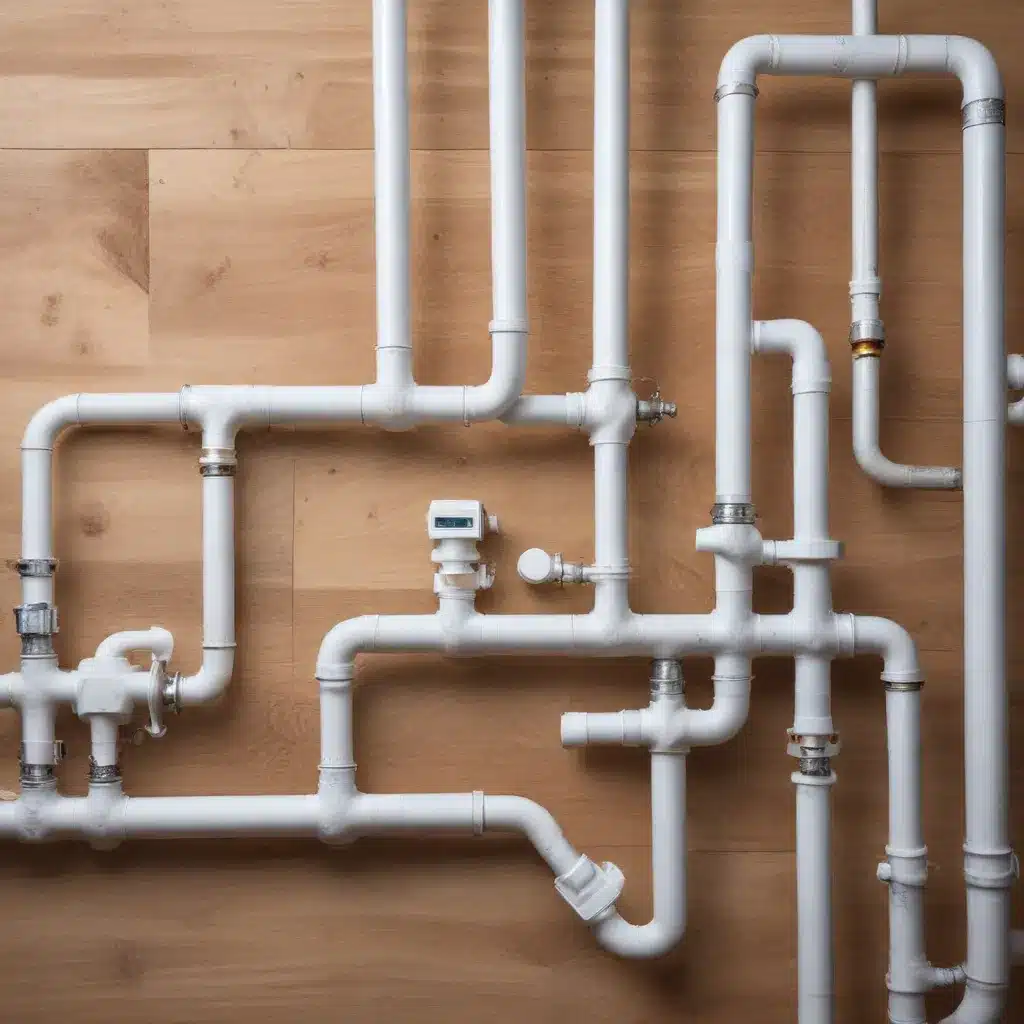
As energy costs continue to rise and environmental concerns grow, homeowners are increasingly seeking ways to make their homes more sustainable and energy-efficient. One area that has seen significant advancements in recent years is plumbing, with a range of innovative technologies and materials that can significantly improve a home’s energy performance and reduce its environmental impact.
Sustainable Plumbing Solutions
Water Conservation Strategies
Water conservation is a key focus for modern plumbing systems, and there are several strategies homeowners can implement to reduce water consumption. The use of low-flow faucets, showerheads, and toilets can dramatically cut water usage without compromising functionality. These fixtures are designed to deliver the same level of performance while using far less water, saving hundreds of gallons per household annually.
Beyond water-efficient fixtures, greywater recycling systems have emerged as a highly effective way to reduce freshwater demand. These systems collect and treat used water from sinks, showers, and washing machines, allowing it to be reused for non-potable applications, such as toilet flushing or landscape irrigation. By diverting this “greywater” from the sewer, homeowners can significantly reduce their overall water consumption.
Renewable Energy Integration
Integrating renewable energy sources, such as solar power or hydroelectric generation, into a home’s plumbing system can further enhance its energy efficiency. Solar-powered water pumps, for example, can provide reliable water pressure and distribution without relying on the electrical grid. Micro-hydroelectric generators installed in the plumbing system can convert the flow of water into electricity, contributing to the home’s overall energy generation.
Thermal Efficiency Enhancements
Improving the thermal efficiency of a home’s plumbing system can also yield significant energy savings. The use of insulated pipes and tankless water heaters can minimize heat loss, reducing the energy required to maintain desired water temperatures. Geothermal heat pumps, which leverage the stable temperature of the earth’s subsurface, offer an efficient alternative to traditional water heaters, providing both heating and cooling for the home.
Innovative Plumbing Technologies
Smart Water Management Systems
The emergence of smart home technology has revolutionized the way homeowners interact with their plumbing systems. Smart water meters and leak detection sensors can provide real-time monitoring of water usage, alerting homeowners to leaks or unusual consumption patterns. These systems can even automatically shut off the water supply in the event of a detected leak, minimizing potential water damage and wastage.
Integrating automated water management systems with a home’s broader smart ecosystem allows for seamless control and optimization of water-related functions. Homeowners can remotely adjust water usage, program irrigation schedules, and receive detailed reports on their water consumption, all from the convenience of their smartphones or voice-controlled devices.
Efficient Heating and Cooling
Advancements in plumbing technology have also led to significant improvements in home heating and cooling systems. Tankless water heaters, for instance, provide on-demand hot water, eliminating the energy wasted by traditional storage-based systems that maintain a constant tank temperature.
Geothermal heat pumps have become increasingly popular for their exceptional energy efficiency. These systems use the stable temperature of the earth’s subsurface to heat and cool a home, reducing the reliance on fossil fuels or electricity-powered HVAC systems. By tapping into the earth’s natural thermal energy, geothermal heat pumps can significantly lower a home’s carbon footprint and utility bills.
Eco-Friendly Plumbing Materials
Sustainable Piping Options
In addition to technological advancements, the plumbing industry has also seen the introduction of more environmentally friendly materials. Copper piping, long a standard in the industry, is prized for its durability and resistance to corrosion. However, the production of copper can have a significant environmental impact. As a result, PEX (cross-linked polyethylene) tubing has gained popularity as a sustainable alternative, offering comparable performance with a smaller carbon footprint.
PEX tubing is highly flexible, reducing the need for fittings and joints, which can be potential sources of leaks. It is also resistant to corrosion and scaling, potentially extending the lifespan of a home’s plumbing system. Additionally, PEX can be easily recycled at the end of its useful life, making it a more eco-friendly choice for homeowners.
Green Fixture Alternatives
Beyond piping materials, the plumbing industry has also developed a range of water-efficient fixtures that can help reduce a home’s environmental impact. Low-flow faucets and showerheads deliver the same level of performance as their conventional counterparts while using significantly less water, often reducing consumption by 30% or more.
Similarly, water-efficient toilets have become increasingly popular, with models that use as little as 1.28 gallons per flush, compared to the 3.5 gallons or more used by older, less efficient designs. These advanced fixtures not only save water but also contribute to lower utility bills for homeowners.
Plumbing System Design
Whole-Home Optimization
When it comes to creating an energy-efficient home, a holistic, integrated system approach to plumbing design is crucial. By considering the home as a whole, rather than focusing on individual components, plumbing professionals can identify opportunities for optimization and synergy between different systems.
This whole-home optimization may involve strategies such as coordinating the placement of water heaters, integrating renewable energy sources, and ensuring proper insulation and ventilation throughout the plumbing network. By taking this comprehensive view, plumbers can help homeowners achieve maximum efficiency and cost savings.
Renewable Energy Integration
Integrating renewable energy sources, such as solar power or micro-hydroelectric generation, into a home’s plumbing system can further enhance its energy efficiency. Solar-powered water pumps, for example, can provide reliable water pressure and distribution without relying on the electrical grid. Micro-hydroelectric generators installed in the plumbing system can convert the flow of water into electricity, contributing to the home’s overall energy generation.
By combining sustainable plumbing solutions, innovative technologies, and eco-friendly materials, homeowners can transform their living spaces into energy-efficient, environmentally responsible havens. Whether you’re planning a new construction or a comprehensive renovation, exploring the latest plumbing advancements can help you create a home that not only reduces your carbon footprint but also delivers long-term cost savings and enhanced comfort. For more information on energy-efficient plumbing solutions, visit abc-home.co.uk/plumbing-electrical/.
















